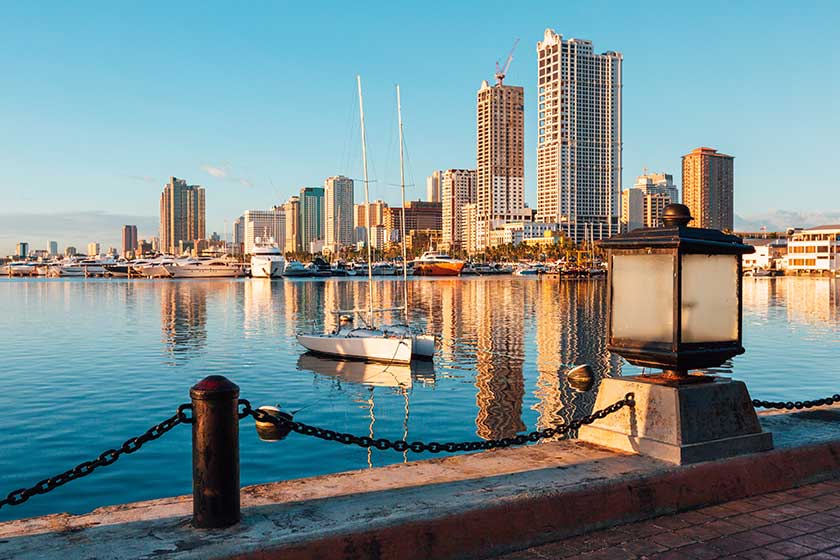Destination Manila

A Look at What Makes the Philippines a Top Accounting Outsourcing Destination
IF YOU’RE READING THIS, YOU’RE PROBABLY THINKING ABOUT TAKING SOME OF YOUR ORGANIZATION’S FINANCE AND ACCOUNTING OFFSHORE BY WAY OF THE PHILIPPINES THROUGH OUTSOURCING. BY THE SAME TOKEN, YOU MAY HAVE A SLEW OF QUESTIONS AND A NUMBER OF CONCERNS.
There’s an awful lot of information out there about BPO in the Philippines — some of it is really informative, while some may be out-of-date and still more might miss the mark completely.
The majority of first-time outsourcers aren’t quite sure what to expect when they get started. One of the most frequent concerns we hear at the inception of our relationship is, “What is the quality of talent that will be assigned to my team?”
Let’s be frank here: you, too, may be worried about the qualifications of offshore talent. That’s natural, and any potential Finance and Accounting Outsourcing (FAO) partner you may be considering contracting with will face those concerns head on.
Many times, people imagine the relationship between an FAO provider and themselves as a faceless, transactional service. And sometimes, it can be. But we do things very differently here at Personiv: the Philippines accounting outsourcing teams we build for our clients, whether they’re comprised of a single accounts payable specialist or number closer to 50 are deeply invested, highly-qualified extensions of our clients own teams.
Read on to discover why the Philippines is the bet place for Finance & Accounting Outsourcing.
THE PHILIPPINES ACCOUNTING OUTSOURCING: CULTURE SHEET
This archipelago, made up of over 7,000 islands and situated between the Philippine and South China Sea, has a rich history. In the 16th century, it was a Spanish colony and even did a brief stint as a U.S. colony for a few decades at the turn of the 19th century. Now it’s a self-governing, independent country that’s completely unique with a language, culture and business landscape that’s one of a kind.
Of course, this handful of facts does little to really help understand what life in the Philippines is truly all about, including what organizations who are hoping to do business in the country can expect once they get there.
It would be impossible to sum the entire country up in just a few pages, but there are some key characteristics that set this unique nation apart, and make it such an excellent choice as an offshore arm of your stateside team.
POPULATION — 106 MILLION CAPITAL — MANILA OFFICIAL LANGUAGE — FILIPINO AND ENGLISH CURRENCY — PHILIPPINE PESO, ₱ APPROXIMATE EXCHANGE RATE—$1 USD:₱50
CULTURAL PILLARS IN THE PHILIPPINES – THE PHILIPPINES IS YOUR BEST BET FOR ACCOUNTING OUTSOURCING
If you’re unsure what to expect when it comes to the Filipino way of life, the first thing to know is that you’ll find a shared set of cultural values that sync up really well with a few principals that are completely unique to the Philippines. It’s truly a one-of-a-kind destination that manages to still feel entirely familiar to Westerners.

KEEPING THE FAITH AND KEEPING IT ALL IN THE FAMILY
The majority of Filipinos—81 percent —identify as belonging to the Catholic religion, making it the primary faith practice in the Philippines. The country is also home to other Christian sects and a sizable Muslim population — 11 percent — and faith has an important role to play in Filipino culture and life.
“Kahandahang loob” is a cultural value that encompasses a sense of shared humanity. You can think of it as a determination to see the good in anything or in anyone and creates an obligation to help someone that you know is in need, even if it means personal sacrifice.
“Doña”, “po” and “ho” can be translated to “Madam”, “ma’am” and even “miss” in English.
There are approximately 75 million practicing Catholics in the Philippines, almost the exact same number as in the United States, give or take a few thousand. How’s that for a cultural parallel?
You may hear the phrase“Bahala na” frequently if you visit the country. It’s the Filipino version of “ Que Sera Sera,” and means “Leave it up to God.”
These strong connections to faith also inform another important part of Filipino identity: the family unit. Kinship is a key cultural underpinning in the country and extends beyond the deep respect elders are afforded to strong ties in social groups and even professional group bonding.
Filipino children don’t necessarily fly from the nest as soon as they turn 18, and it isn’t altogether uncommon to see households with up to three generations living together under a single roof.
Each family member sees their role as important within the nuclear and extended family unit, which may be why you’ll find a true respect for elder household members — and authority figures as a whole — when you travel there. American southerners will be right at home here, knowing that no one will look at you sideways over the use of honorifics like “sir” or ma’am.”
“Ginoo” and “ser” are two ways to show an older gentleman or senior colleague respect. There’s also a significant emphasis in the Philippines on the individual obligation to social justice, which some attribute to this greater emphasis on faith and family. Either way, this sense of responsibility to others is baked into the culture and extends even to strangers.
CULTURAL COMPATIBILITY AND PROFESSIONAL PARALLELS
If all of these Filipino phrases have you worried that you’ll need to take extensive language courses to do business in the Philippines, it shouldn’t.
While Filipino — a descendant of Tagalog — is the official language in a country where 10 other languages are spoken, you’re just as likely to be able to have a conversation in English. With English dominating their extensive education system (more on that later), 92 percent of Filipinos claim English as their second language, making the language barrier practically nonexistent.
This is yet another reason that the Philippines remains a natural choice as a destination for organizations in the U.S. who are looking to bring part of their operations overseas. You’ll also be part of a rich history between the two nations.
Each year, approximately $27 billion in goods and services are exchanged between our two countries
The U.S. remains one of the largest foreign investors in Philippine interests
We’re also the third-largest trading partner to the Philippines, thanks to a bilateral trade agreement signed in 1989
The Philippines is home to nearly 850 BPO providers, making it one of the largest sources of contribution to GDP thereby bringing in an estimated $1 billion every year
Philippine cities took up six of the 100 slots in Tholon’s list of top destinations for outsourcing, including Manila — where Personiv is located — a metropolitan listed as second in outsourcing in the entire world
It’s an industry that continues to grow, with an estimated 700,000 jobs slated to be added through the BPO sector to the Philippine economy by this year.
PH to U.S. Exports Semi-processed semiconductor materials
So, what’s the draw, besides the high rate of English speakers and fierce sense of group loyalty? Adaptability and creativity are other traits that are woven into Filipino culture, as well as a strong work ethic that’s tied to yet another pillar of identity: Self-esteem, or Amor propio.
The preservation of someone’s dignity is considered a basic empathetic exercise in the Philippines, which means that both working and professional relationships hinge on a mutual respect between the people in them. It also hinges on a pride in one’s own self, which often manifests in diligence and industriousness at work.
This is more than just a concept. Once a working relationship is formed, it’s expected that it will be a fiercely loyal partnership, with each party making a mutual, long-term investment in the other.
A commercial suki relationship is one where two people — or entities — come to a mutual agreement that keeps exchange and procurement between themselves. This translates easily to client-vendor and employer-employee relationships, where over time a bond close to kinship is formed.
For BPO clients, this means that an investment in an industrious Philippine workforce will be met with an investment in the quality, efficiency, and output by those same workers, who also become fierce advocates for the organization they work for.

“Our English proficiency and deep cultural compatibility is a perfect combination. We don’t just speak English well in the Philippines, we can also relate easily to our clients and counterparts in the U.S.— whether it’s the call center agent who can make small talk with a U.S. customer about the latest fashion trend, or a graphic designer that can create a perfect color combination that appeals to American sensibilities.” – Paulo Cheung, EVP & Site Head, Personiv Manila
By choosing to outsource with a lean accounting team for your organizations, you’ll be empowered to:
Focus on core competencies driven by actionable data
Review vendor metrics and complete a pilot program to assess fit
Expect a seamless transition that centers client goals and safeguards data
Universalize messy and inefficient processes during the knowledge transfer stage
Opt for round-the-clock processing by leveraging time zone differentials
Forego traditional minimum hire requirements with teams as small as one
Retain your technology—as a tech-agnostic organization, we meet you where you are
Consolidate fractional resources and shift to 1:1 resource allocation
Save up to 75 percent of your current operational cost using U.S. GAAP standards
Change the scope of a project without starting from scratch
AN EDUCATIONAL AND PROFESSIONAL POWERHOUSE
Higher education in the Philippines has gone through some key changes in the past decade, including expanded access to education at all levels and the Philippine government’s decision to completely do away with tuition fees for students pursuing higher education in 2015.
If you go back even further, however, you’ll find that the Philippine tertiary education system is largely modeled directly off of the United States, further cementing experiential parallels between our two cultures.
Whether it’s an intern vying for a permanent IT job or a new graphic design graduate polishing up their portfolio of work, you’ll find a lot in common between American and Filipino students as they head out into the professional world.
There are 242 public universities across the country. Approximately 500K new college graduates join the workforce every year. Private universities account for 1721 institutions of higher learning.
Those parallels extend to the segment of the workforce that’s made of newly minted accounting graduates too, with one key differentiator: where the pool of American accounting labor seems to shrink prohibitively each year, it’s growing exponentially in the Philippines — and it shows no sign of stopping.
Our home base of Manila is home to some seriously prestigious colleges and universities, recognized both at home by the Commission on Higher Education (CHED) and internationally by the QS World University Rankings.
There’s a 97.5% literacy rate among Philippine citizens over the age of 10. In the National Capital Region, which includes the capital, Manila, that number jumps to 99.7%. The employment rate has stayed high in the country for years, clocking in at 95.4% in the fourth quarter of 2019.

WHY THE PHILIPPINES IS YOUR BEST BET FOR FAO – PHILIPPINES ACCOUNTING OUTSOURCING
As if this information isn’t enough to put an apprehensive would-be outsourcing client at ease, there’s the small matter of the growing pool of highly qualified accounting talent in the country. Just as the professional association of note here in the States is the American Institute of Certified Professional Accountants (AICPA) the Philippines is home to the Philippine Institute of Certified Professional Accountants (PICPA).
Both are members of the International Federation of Accountants (IFAC), an organization that exists in order to “Support, develop, adopt, and implement high-quality international accounting standards,” and oversees this standardization process in 130 countries. Membership in IFAC means that the very same standards apply to an accountant working out of Manila as to a CPA working out of Miami.
Candidates in the U.S. and the Philippines will both have completed the necessary educational track — which includes, at minimum, a BSc in Accountancy to even qualify for the CPA exam, and when both pass, they’ll adhere to the same accounting practices, be held accountable by the same auditing standards and complete the same amount of continuing education in the accountancy field at the appropriate juncture in their careers.
The best part? Accounting in the Philippines is based on U.S. GAAP accounting standards, preparing their top accounting grads to work on U.S. accounts.
And where stateside talent is in short supply these days, the accounting career is growing in popularity in the Philippines, home to more than 175,000 CPAs, and adding more to the ranks each year. (Compare that the statistic that more than 75 percent of U.S. CPAs will retire in the next 15 years, with few Millennials joining the profession, according to AICPA.)
In Manila alone, there are a combined8,325 CPAs in public or commercial practice
In 2010: – 302, 200 candidates sat for the CPA exam in the United States – 12,988 candidates did the same in the Philippines
By 2016: – 102,320 candidates sat for the CPA exam – 21,315 did the same in the Philippines
Today, about 600 Philippine institutes of higher education offer a BSc to students seeking an accredited accountancy degree, higher than it’s ever been
That could explain this: In 2014, PICPA welcomed 1,643 new members. In 2016, they welcomed 8,216
Case in point, the Philippines accounting outsourcing industry is here to stay and will grow exponentially over the following years
ABOUT PERSONIV
For over three decades, we’ve delivered custom, cost-effective solutions that improve the efficiency of teams of all sizes across the globe. Our highly-skilled people power everything from accounts payable and general accounting to payroll and tax reporting—and beyond.
This rich, 35+ year history is the foundation we’ve built our expertise on. Our white-glove service and commitment to delivering world-class customer experience have allowed us to go from vendor to partner with the clients we have the privilege of serving.
We know that one is a powerful number. A single idea can launch a business. The right leader can help it grow. And just one skilled accountant is all it takes to unlock efficiency in transactional processes so strategy can take center stage. When it does, you can focus on actionable data and stop the monthly fire drill to close the books.
Below are some of the Philippines accounting outsourcing tasks we’ve helped organizations with:
Setting Up Chart of Accounts
Month-end or year-end closing
Bank reconciliation reporting
Detail general ledger reporting
Fixed asset account management
Invoice approval Expense allocation
Online payment approval
Check processing
Handling of vendor inquiries
Order management
Customer billing
Change to A/R aging & analysis
Collections management
Cash forecasting & reporting

Get the complete report.
WITH PERSONIV PERFORMING YOUR BUSINESS PROCESSES
YOU CAN ENJOY IMMEDIATE RESULTS PREPARED ON-DEMAND AT A PRICE POINT THAT TRADITIONAL OUTSOURCING CANNOT MATCH.




